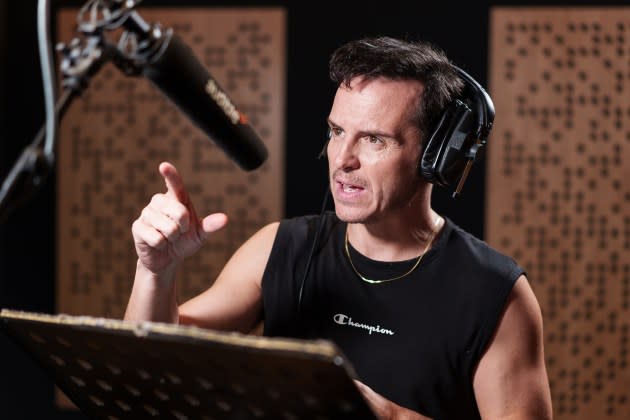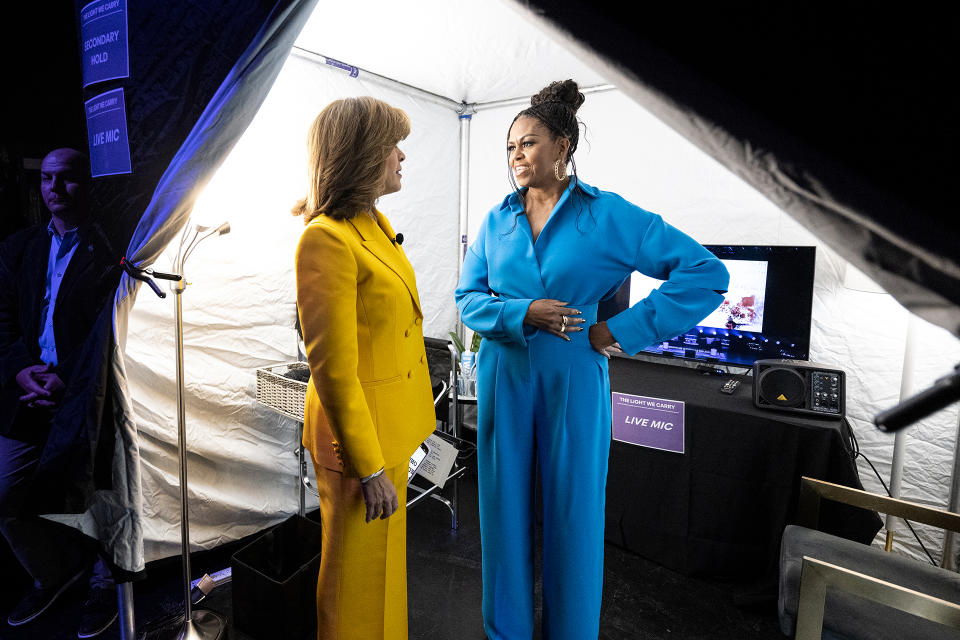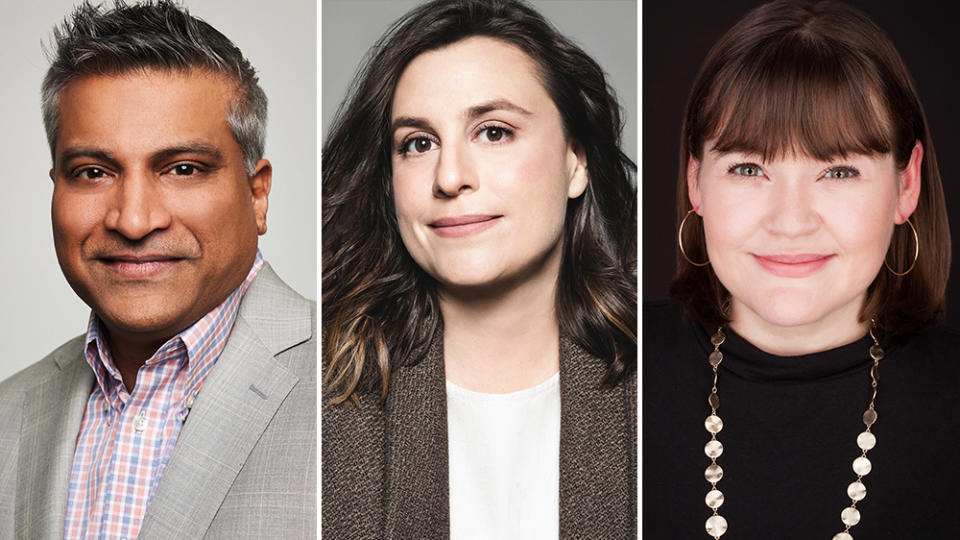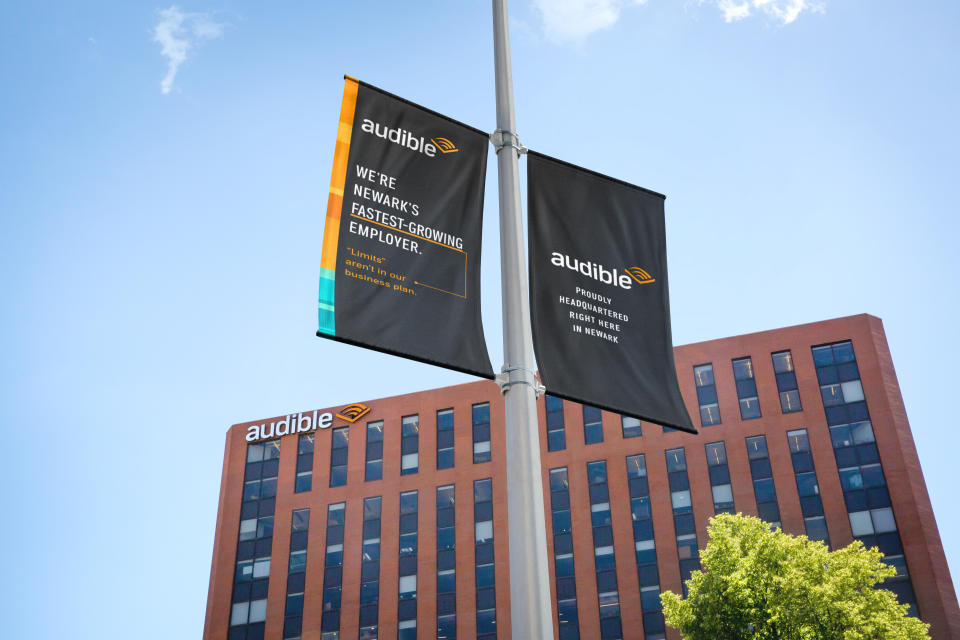High Fidelity: Audible Rides Audio Boom with Big Investments in Original Content

Mother’s Day weekend 2019 marked a turning point in the young life of Madhuri Shekar.
It all started two years before with a phone call from a woman named Kate Navin, then head of theater for Audible. Navin said she’d recently been armed with money to develop original works from emerging play- wrights, and she was calling to offer Shekar, just a year out of Juilliard, the chance to write. The only catch: Shekar’s play would have to be crafted as an audio-only production.
More from Variety
Shekar’s answer to this challenge was “Evil Eye,” a 100-minute potboiler that revolves around daily telephone conversations between a mother in India and a daughter in Los Angeles. The finished play was released on Audible in May 2019. For Shekar, the impact on her career was immediate. Within weeks, she was negotiating a deal with Priyanka Chopra Jonas and Blumhouse for the movie version that premiered on Amazon Prime Video in 2020. She never saw this coming — it had all felt to her like an experiment.
“I had been looking for a challenge,” Shekar says. “I started from the point of thinking about what story I could tell that would really come alive for people hearing it as opposed to seeing it. There was a lot of playing with the boundaries of the form; there was so much I could do by immersing you in the voices of these two women.”
Immersion in theater of the imagination is the entertainment experience that Audible most wants to offer. The company has been around as an audio book distributor for more than 25 years, and it has really revved up original content during the past decade. That’s when audio content started to evolve rapidly, as smartphones gave more people the ability to cue up thousands of hours of music, podcasts and audio books. The company does not disclose its numbers, but it’s paid subscriber base is estimated to be in the tens of millions.
While long-form audio used to be the province of dour-sounding NPR and BBC radio documentaries, the proliferation of titles and program formats has massively expanded the boundaries of audio-only storytelling. Podcasts, in particular, have become popular source material for TV and film development. They’re seen as a relatively low-cost way to incubate concepts and test out characters and worlds. But increasingly, audio-centric production companies such as Audible and Wondery (both owned by Amazon), Campside Media, Gimlet Media, Kast Media, Crooked Media, Pineapple Street Studios and The Podglomerate are building businesses where making money through audio is the primary focus. Audible has upped its game with original content by courting emerging writers like Shekar as well as established names including Kerry Washington, Jesse Eisenberg, Daniel Dae Kim and James Patterson.
If the audio business is going through its own version of a Peak TV bubble, Audible hopes to stand out with starry productions, high-end sound design and other tech innovations befitting a company that has been owned by Amazon since 2008. The company’s upcoming originals slate includes a three-and-a-half-hour adaptation of George Orwell’s “1984,” featuring Andrew Garfield, Cynthia Erivo, Andrew Scott and Tom Hardy. Muse’s Matthew Bellamy and Ilan Eshkeri wrote the score, which was recorded by the London Metropolitan Orchestra at Abbey Road Studios. In other words, Audible wrote some larger-than-usual checks for this one.
Audible’s investment in “event” titles is naturally drawing the attention of Hollywood creatives, particularly at a time when traditional film and TV employment is tightening up.
Kim, the star of ABC’s “Lost” and “The Good Doctor,” sees audio content as a promising canvas for his 3AD production banner. The company signed a first-look development deal with Audible in early 2023, and its first production, a staging of David Henry Hwang’s 2007 play “Yellow Face,” premieres May 2. The work that Kim and Hwang did for the Audible production was the catalyst for “Yellow Face” landing a spot on the Roundabout Theatre Company’s 2025 season, with Kim starring.
“There’s such an opportunity here for content developed for TV and film to have audio companion pieces or to extend cinematic universes in ways that we haven’t thought of yet,” Kim says.
Founded by technology entrepreneur Don Katz in 1995, Audible is a pioneer in the world of on-the-go audio and streaming. Katz was frustrated by the experience of listening to audio books on cassette tapes, and so in 1997, he launched the world’s first portable digital audio player, nearly four years before Apple introduced the iPod. (The first book downloaded on the Audible platform was John Gray’s 1992 self-help hit “Men Are From Mars, Women Are From Venus.”) The Audible player never took off, but the companion Audible.com platform grew roots in the nascent dot-com business. It survived the market crash that followed the Sept. 11 attacks in 2001. Seven years later, Amazon paid $300 million for the platform.
Today, for a base subscription price of $95 to $150 a year, the company offers 900,000 books, podcasts, plays and Audible originals. Audible’s platform offers a mix of free audio books and those that must be purchased from publishers for a fee. It’s a rabbit hole for anyone with an ounce of curiosity and a few minutes (or hours and hours) to spare. At present, a little over 40% of U.S. adults say they’ve listened to at least one podcast in the past month. About the same amount say they’ve listened to an audio book, according to data from audio entertainment research firm Sounds Profitable. The podcast business overall generates about $2 billion a year in advertising revenue in the U.S., compared with about $14 billion for radio stations.
Michelle Obama’s “The Light” is among Audible’s most popular original podcasts. Last August, the Obamas’ Higher Ground also launched the podcast interview series “Your Mama’s Kitchen,” hosted by Michele Norris.

Rachel Ghiazza, Audible’s chief content officer, feels her mission at the company is to continue to advance the state of the art in audio storytelling. “Our founder always says, ‘Audio is bought, not sold.’ We really have to think about the fact that people are coming to us because they want high-quality, well-performed words that are going to add something to their life,” says Ghiazza. “We have a really robust post-production process. We put together notes on edits, on dialogue, on takes. Then we’re layering in the sound design. It’s a really long, thoughtful, well-done process.”
Ghiazza came to Audible in 2019 from Spotify, which has emerged as Audible’s chief rival.

“Audible has carved out a unique space for itself in spoken-word audio,” says Tom Webster, a partner and analyst for Sounds Profitable, which focuses on the business of podcasting. “They’re offering more original content and they’ve had some successes. They’re also, in a way that no other podcast company is, the home of the new Walter Isaacson book or the Dave Grohl biography. If you want to hear a full-blown audio production of a hot new book, Audible is the first place you’re going to go.”
Dan Fierman, head of audio for Higher Ground and former editorial director of ESPN’s Grantland, sees people tuning in to podcasts and recurring audio programs as a modern version of reading magazines.
“What I find so exciting about audio is it’s as close as you come to those great monthly and weekly magazines that nicely occupied that middle space between in-depth reporting, news and entertainment,” he says. “When I think about building our podcast slate, I think of it like building a magazine: You’ve got your middle-of-the-book features, the front-of-the- book popcorn, you’ve got your critics.”
The introduction of the iPhone in 2007 made it possible for people to have easy access to thousands of hours of spoken-word content. The pandemic gave more people downtime to scroll through those options and sample from a growing supply of podcasts and audio books. But long before the COVID lockdowns hit, Audible’s management knew it was time to go for it with a broad menu of original productions.
In analyzing the listening patterns of subscribers, “you see that people are listening to a lot of different things all the time. It’s not necessarily like there’s a top thing and 20% of the customers are listening to it,” says Ghiazza. “You see there’s a huge variety of listening — both things that just came out and things that have been out for a decade or two. That was a discovery that I made when I got to Audible that I thought was incredible.”
Pat Shah, global head of content acquisition, strategy and partnerships, came to Audible in 2020 after holding senior roles at Spotify and Twitch. In his experience, audio content is consumed differently than other mediums. “There’s an intimacy that comes from audio when someone is talking in your ear,” Shah says. “There’s an element of audio that is more than just entertainment. It’s really about being a part of somebody’s life.”
Audible’s pitch to the creative community, particularly Hollywood in its moment of disarray, has been simple and straightforward. “The heart of it is we match our expertise with your creative energy,” says Navin, now Audible’s head of creative development for North America. “We are going to let you come in with an idea that’s exciting to you, and let’s talk about the right way to tell it in audio.”
No question, Audible also benefits enormously from its access to Amazon’s deep pockets and proximity to its vast digital infrastructure for selling and cataloging books. “Honestly, we’ve got the audience,” Navin says. “We’re not trying to find a business model. And I think right now for Hollywood that’s a very attractive proposition.”
The boost provided by “Evil Eye” continues to pay dividends for Shekar, who’s a writer on Netflix’s upcoming drama “3 Body Problem” and developing her own drama series for the streamer. “A Nice Indian Boy,” a feature film based on her play of the same name, premiered this month at the SXSW festival.
Shekar sees audio productions as having significant potential to help writers develop and even fund stage productions. “So many wonderful playwrights are getting an opportunity from this commissioning program,” Shekar says. “I wish more people in theater were experimenting with ways to sustain our industry.”
Fierman credits the Audible team with working hard to set its original productions apart with layered audio effects, sharp sound mixing and other touches that stand out to listeners’ ears. “Great work requires pushing and pushing,” he says. “It’s not the first 95% — it’s the 96% to 100% that takes good work and elevates it to great work.”
The Audible team is built for this kind of white-glove care because, Fierman says, “they’re grown-ups. They’re not just trying to make the next true-crime/dead-body thing. They approach things with real care and real smarts. It’s why we’re there.”

In Audible’s Backyard: A Potent Partnership with Newark
One of the distinctive features of working for Audible is the company’s unusually strong commitment to the Garden State city that is home to its corporate headquarters: Newark.
Audible put down roots in Newark in 2007, when the company became one of the city’s biggest corporate boosters as local leaders rolled out a broader revitalization plan for the region. Among many other programs, Audible offers paid internships to local high school students, a program that includes support for when students transition to college and the chance to have “return-ship” employment with Audible after they graduate.
Rachel Ghiazza, Audible’s chief content officer, says the company’s dedication to helping re-energize New Jersey’s most populous city has been inspiring.
“You’ll find people in the company who are at a senior level who have come through these programs because we’ve been doing them so long,” Ghiazza says. “So it is a big part of our DNA and who we are.”
Beyond the company’s civic investments, Audible’s presence also helps add to Newark’s growing image as a New York City-adjacent media hub. Lionsgate at present is in the midst of building a new soundstage and production complex in Newark.
“There’s been so many important creative talents who have come out of Newark, but they always had to leave the city to shoot their film or write their script,” Ghiazza says. “We provide opportunities for creators who don’t have to leave Newark to do their job.”
Audible’s offices are in the heart of the city near Rutgers University. Audible is also behind the Innovation Cathedral, a former Presbyterian church that was refashioned into a technical R&D hub for the company.
All told, Audible has been “an incredible partner” and booster for Newark, according to Ras Baraka, who has served as the city’s mayor since 2014.
“Audible has grown its footprint in this city and they have invested in the community around them,” Baraka tells Variety. “They’ve encouraged their employees to live here. We’re trying to make Newark a destination city [for content creators] and Audible really assists us in that.”
Best of Variety
From 'The Idea of You' to 'Apples Never Fall': The Best Book-to-Screen Adaptations to Read This Year
Sign up for Variety’s Newsletter. For the latest news, follow us on Facebook, Twitter, and Instagram.


